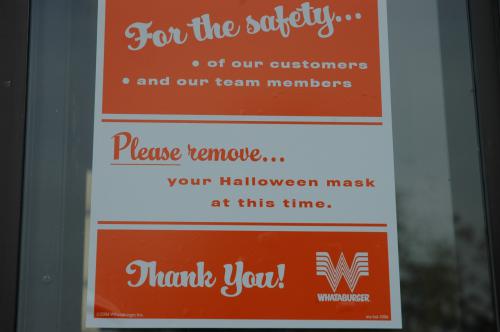
Image Credit:
I spent a great deal of my first year teaching Rhetoric—last year—discussing bias with my students. Time after time, I reminded them: everything you’ll read has some kind of bias, but that’s okay, because bias isn’t inherently a bad thing. Though it is, I pointed out, a thing you’ll need to take into account.
And yet, all the while, the desire to hide my own bias held tremendous sway over how I presented myself as a teacher. Around the time I began graduate school, a politically conservative friend had confessed that she had been miserable in college, in no small part due to her discomfort in political science classes at our predominantly liberal institution. In those settings, she explained, professors often declared their political attitudes in a way that alienated the few students who held other positions. Her experiences of classroom anxiety worried me; I certainly didn’t want my own students to feel uncomfortable voicing their views in class, or even worse, to suspect that I might discriminate against them! To combat this risk, I determined that the easiest fix would be to avoid revealing my political, social, and other potentially controversial beliefs.
Naïve though it may seem, this strategy seemed doable enough at first. Even when I showed clips from the 2012 presidential debates, my students readily took to arguing over which rhetorical fallacies fell flat and which were effective; they picked apart statements by all candidates with equal zeal. I bit my tongue a few times during class discussion, but for the most part I felt like I was right on track with my “neutrality.” (I was surprised to learn that they didn’t make assumptions about my beliefs based on my affiliation with a humanities department. I was even a little proud when several of them mentioned that they had no idea which presidential candidate would be getting my vote.)
Eventually, however, I began to find myself struggling with the ethics of staying so consistently silent. In the interest of student confidence, I won’t recount the specifics of my turning point here. Suffice it to say that, in a class presentation, a student took a particular stance on a controversial issue—a position s/he earnestly defended, and by no means an unusual one—but nonetheless a stance that I found deeply morally troubling. Not wanting to shame the student, and still afraid to expose my own political leanings, I offered a weak counterpoint and mostly let it go. Class discussion moved on.
As soon as I walked out of the classroom, I knew my reaction had been absolutely wrong: ethically, pedagogically, personally wrong. Almost a year later, I still regret that I didn’t enable a “teachable moment”—worse, that I chose to hope that students with whom I profoundly disagreed would feel at ease, while in the same breath I effectively cast aside concern for students with whom I profoundly agreed. As any student of Rhetoric would have guessed, my effort to create a mask to hide my bias had resulted in a mask that instead suggested I had an entirely different bias. I realized more fully what I’d been telling my students all along: the fact that I come into the classroom with bias doesn’t necessarily make me a bad source. And in this case, I very strongly felt that working with, rather than against, my own bias would have made me a better teacher.
Clearly, I had to change tracks. I spent a semester halfheartedly trying to keep any remotely sensitive topics out of class discussion, which was certainly less interesting, but I don’t deny that it required me to make fewer tough decisions.
This year, though, I’m teaching Rhetoric of Tourism, so I knew I couldn’t—and genuinely wouldn’t want to—avoid all such questions. My students are writing about cultural authenticity, the distribution of labor within the tourism industry, travel to Cuba, and all other sorts of politically sensitive, but absolutely important, problems in tourism. So I’m trying a new approach. At the beginning of the semester, amidst all the other disclaimers (no late work, three tardies count as one absence), I told my students that I planned to offer my own point of view when I felt it was important, but that they should always feel safe and encouraged to express their own takes (so long as they remained respectful!). I didn’t tell them which presidential candidate I voted for last year, but unlike my Fall 2012 students, I bet most of this group can guess. I haven’t yet seen my new strategy through to the end of the term, but I’m hopeful. And I remind myself that my students are well aware that I, like anyone else, can’t eliminate my bias altogether. After all, if they weren’t aware, I’d hardly be doing my job.

